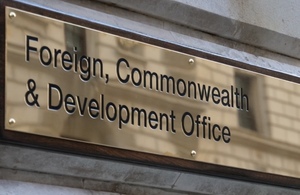New UK Government Covid testing site opens in Glasgow
The UK Government has today, Saturday 21 November, opened a new walk-through coronavirus testing centre at St Francis Community Centre in the Gorbals in Glasgow. The centre is easily accessible for people without a car.
The new facility at 405 Cumberland Street (G5 0SE) is being provided by the UK Government as part of a UK-wide drive to continue to improve the accessibility of coronavirus testing for local communities. It is operated by Mitie on behalf of the UK Government.
The test centre is part of the largest network of diagnostic testing facilities created in British history. In Scotland, this comprises of six drive through sites, 14 walk-through sites, 21 mobile units, plus the Glasgow Lighthouse Lab which is working round the clock to process samples.
In Scotland, the UK Government is providing all COVID testing and test processing outside of the NHS. Around two thirds of all daily tests are provided by the UK Government, in support of Scotland’s health services.
Tests must be booked in advance at NHS Inform or by calling 0800 028 2816. People should only book at test if they have coronavirus symptoms (a high temperature, a new and continuous cough, or a loss or change to their sense of smell or taste).
UK Government Minister for Scotland, Iain Stewart, said:
The UK Government is helping all parts of the UK fight the coronavirus pandemic.
Testing is vital, helping to manage local outbreaks and protecting people’s livelihoods. The UK Government is providing the bulk of Covid testing in Scotland, and this new walk-through centre is just the latest in our extensive testing network.
We are pleased to be working with local and commercial partners. These sites are not possible without the hard work of many people. I would like to thank everyone involved for their incredible efforts for the good of the country at this difficult time.
Simon Venn, Mitie Chief Government & Strategy Officer, said:
Our priority during the pandemic is to support the nation’s efforts to fight COVID-19 and help keep the country running. Testing is a critical part of the UK’s strategy to combat coronavirus and we’re proud to support the UK Government with this vital task. A big thank you to all the NHS staff, Mitie employees and other frontline heroes in Glasgow, who are working tirelessly to keep us all safe.
Dr Linda de Caestecker, Director of Public Health, NHS Greater Glasgow and Clyde said:
I am very pleased that we have a new walk through testing centre in Glasgow to allow members of the public to access testing when they need it.
Our Public Health Protection Unit and Test and Protect Team continue to contact trace positive cases and clusters in our community. I want to thank the public for their cooperation in reducing spread of the virus and in getting tested as soon as they have symptoms.
Please remain vigilant. The general measures to minimise the risk of COVID-19 remain the same – social distancing, regular hand washing, and being on the look-out for symptoms.
